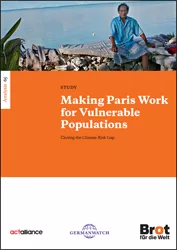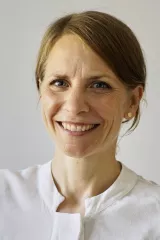
In December 2015 the Paris Agreement was adopted, in November 2016 it will come into force. A transformation of the energy-, transport- and agricultural sector is needed, to be able to implement the goals agreed upon and to limit global warming to 1.5°C/well below 2°C.
In this process, the poor and most vulnerable people should not left behind, as they are affected most by climate change impacts and the resulting risks. To minimize the "climate risk gap", the interests of these sections of population needs to be respected while implementing the Paris Agreement and the related actions. Their human rights have to be fulfilled and not be violated by any adaptation or mitigation actions, so they can develop from Climate Change "victims" to rights-holders. Thereby, all actions needs to be rooted in a human-rights-based-approach.





